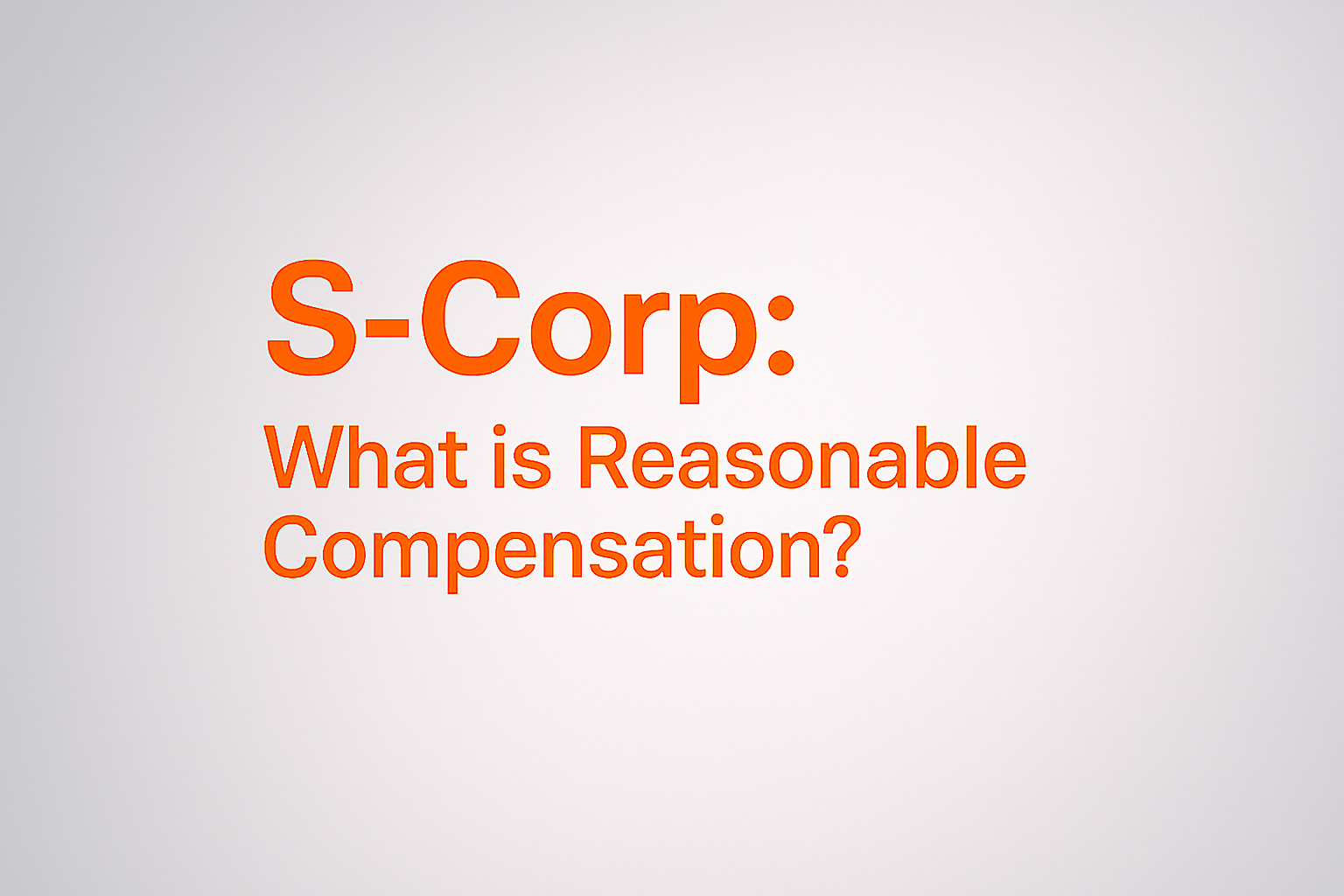Following up on my prior post about S-Elections, I wanted to expand on the concept of “reasonable compensation.” After all, if S-Corp owners only have to pay Self-employment tax on their salary, why not just pay yourself $1 a year?
What exactly is “reasonable” in the eyes of the IRS?
The IRS doesn’t give us an exact formula (of course they don’t!), but they do look at these factors:
•What would someone with your skills, experience, and duties earn in a similar business?
•How much time and effort are you putting into the business?
•What’s the going rate for your skill-set in your geographic area and industry?
•Your business’s size and complexity
Put another way, if you were going to retire tomorrow, and had to hire someone to take care of all of the duties you do in your business, how much would you need to pay them?
3 ways to determine your reasonable compensation:
1. Probably the easiest way to determine your reasonable compensation is by purchasing a compensation report from RC Reports. They make it very easy to obtain thorough & robust compensation studies.
2. A cheaper, more “DIY,” approach is to gather salary data from the U.S. Bureau of Labor Statistic’s website, or salary survey sites like Glassdoor, Indeed, or PayScale for comparable roles.
3. Look at industry association salary surveys for your specific niche.
Whichever method you choose, be sure to document your compensation decision. Write a memo explaining how you arrived at your salary amount, citing market research. Keep it in your tax file. If questioned, this shows you were thoughtful, not trying to game the system.
Here’s what I tell my clients: reasonable compensation isn’t about paying the absolute minimum you can get away with. It’s about paying a salary that reflects what you might pay someone else to do your job — while still taking advantage of the legitimate tax benefits that come with owning and running your own business.
If you have any questions about S-Corp compensation or would like assistance with a compensation study, don’t hesitate to reach out.





